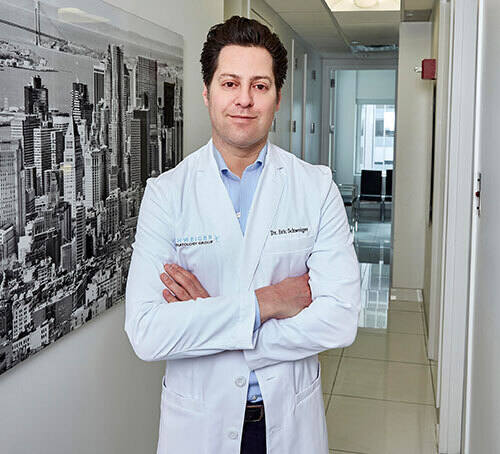How to Treat Cold Sores: Q & A session
For those who suffer from cold sore outbreaks, you know how embarrassing it can be. When a cold sore appears on the lip, the only thing you want is for it to disappear–and fast! Read to learn how to treat cold sores and how to prevent cold sores from returning.
What’s the difference between a cold sore and a canker sore?
Dr. : A cold sore is an infection mainly of the mouth and lips caused by a specific type of the herpes simplex virus, mainly herpes simplex virus type 1 (HSV-1). Cold sores are usually painful and can occur on the lips, gums, tongue, roof of the mouth, inside the cheeks, and sometimes on the face and neck.
Canker sores, on the other hand, are not viral. They can occur on the inside the mouth, on the tongue, and on the roof of mouth. Canker sores, unlike cold sores, do not occur on skin surfaces. Although they reoccur, they are not contagious, usually are self-limiting, and have almost no complications. Canker sores are caused by substances that irritate the lining of the mouth.
How are the different ways someone might contract a cold sore?
Dr. : People contract HSV-1 by touching infected saliva, mucous membranes, or skin. Because the virus is highly contagious, a majority of the population is infected by at least one herpes subtype of HSV-1 before adulthood.
Once you get a cold sore, are you more susceptible to getting them?
Dr. : Yes. After HSV-1 infects a person, it usually proceeds though 3 stages:
- Stage 1: Primary infection. The virus enters the skin or mucous membrane, usually through small cracks or breaks, and then reproduces. During this stage, oral sores, blisters, and other symptoms, such as fever, may develop. The virus may also not cause any sores and symptoms. People may not know that they have an infection. This is called asymptomatic infection. Asymptomatic infection actually occurs twice as often as the disease with symptoms.
- Stage 2: Latency. From the infected site, the virus moves to a mass of nerve tissue in the spine called the dorsal root ganglion. There the virus reproduces again, usually without any symptoms, and becomes inactive, until reactivated by certain triggers (discussed below)
- Stage 3: Recurrence: When people encounter certain stresses (triggers), the virus may reactivate and cause new sores and symptoms.
What are the most common cold sore triggers?
Dr. : Emotional or physical stress, ultraviolet light (including sunlight), illness, fatigue, hormonal changes, immune suppression, and trauma to a site or a nerve region where previous HSV infection occurred.
How best to protect yourself from getting a cold sore if you’ve never had one?
Dr. : To reduce the chance of acquiring a cold sore, avoid touching saliva, skin, or mucous membranes of people who have cold sores. Although close personal contact is usually required for transmission of the virus, it is possible to transmit HSV-1 when people share toothbrushes, drinking glasses, or eating utensils.
Unfortunately, everyone is at risk to get HSV-1 infection. The majority of children between 6 months to 3 years of age are exposed to HSV-1 simply by contact with other humans. By 14-49 years of age, about 60% of the population has been infected, and by age 60, about 80%-85% of the population has been infected with HSV-1.
How best to save yourself from getting them again if you’ve already contracted one?
Dr. : Avoidance of triggers discussed above is the best way to avoid getting a recurrence.
Once you feel a cold sore coming on, whats the best action to take?
Dr. : Topical prescription antiviral creams may shorten attacks of recurrent HSV-1 if it is applied early, usually before lesions develop.
What OTC products do you recommend for cold sore treatments?
Dr. : Use oral analgesics such as acetaminophen or ibuprofen for fever and muscle aches. Abreva (docosanol) can also be used for mild cases to shorten duration and reduce symptoms.
What do you do in-office when someone comes in with a cold sore?
Dr. : A topical anesthetic such as viscous lidocaine may be prescribed to relieve pain associated with oral blisters and lesions. Mild uncomplicated eruptions of herpes simplex require no treatment. Severe infection may require treatment with an oral antiviral agent, such as Valtrex.
Is it safe to wear makeup or lip product over your cold sore?
Dr. : Yes. However, it is best not to re-use these products on other areas if they have directly come in contact with the lesions.
When you have an active cold sore, what precautions do you need to take so it doesn’t spread?
Dr. : Avoid unnecessarily touching the lesions, wash hands frequently, and taking appropriate medications as determined by your doctor. Also discard toothbrushes used once lesions resolved as the virus can be spread though toothbrushes.
Do you have a cold sore? Contact us to schedule an appointment to see a dermatologist or physician associate today!
